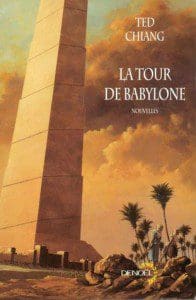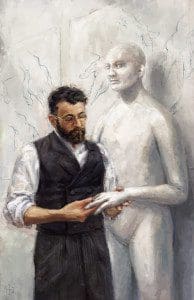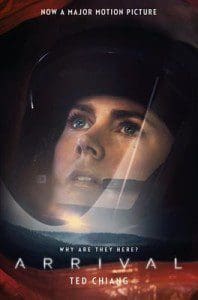I close my eyes and see a flock of birds. The vision lasts a second or perhaps less; I don’t know how many birds I saw. Were they a definite or an indefinite number? This problem involves the question of the existence of God. If God exists, the number is definite, because how many birds I saw is known to God. If God does not exist, the number is indefinite, because nobody was able to take count. In this case, I saw fewer than ten birds (let’s say) and more than one; but I did not see nine, eight, seven, six, five, four, three, or two birds. I saw a number between ten and one, but not nine, eight, seven, six, five, etc. That number, as a whole number, is inconceivable; ergo, God exists.
— Jorge Luis Borges, “Argumentum Ornithologicum”
 Jorge Luis Borges is one of a handful of writers whose every work fills me with awe and envy. I’m awed by the precision of his paradoxes, his ability to usher me into mysteries at once beautiful and haunting. I’m envious because his aesthetics so resonate with me that I feel as if each story I read is a story I’ll never get to write.
Jorge Luis Borges is one of a handful of writers whose every work fills me with awe and envy. I’m awed by the precision of his paradoxes, his ability to usher me into mysteries at once beautiful and haunting. I’m envious because his aesthetics so resonate with me that I feel as if each story I read is a story I’ll never get to write.
Ted Chiang is another such writer. Like Borges, his craft is as precise as clockwork. The elegant inevitability of his plots, which unfold as if mapped upon some narrative Golden Mean, suggests an orderliness to reality without diminishing its mystery. Take, for instance, “Tower of Babylon,” in which the biblical story of Babel is reimagined sans-idolatry: an entire civilization is organized around the desire to be nearer to God Most High. When the hero at last pierces the vault of heaven and enters the “waters above,” he swims upwards until breaking the surface—and finds himself on Earth again, just outside the city, swimming in the “waters below.” The structure of reality is precise, circular, self-contained—and for that reason, unfathomable.
“Argumentum Ornithologicum” is but one of many pieces that illustrate the kinship between Borges and Chiang—their passion for the ambiguities of language and mathematics, their careful, laconic rendering of complex ideas. It is also emblematic of their greatest divergence: Borges was a mystic; Chiang is a materialist.
I had the opportunity to hear Chiang speak this past spring at the University of California at Irvine, where I teach. Students in our Rhetoric and Writing courses had been reading Chiang’s collection, Stories of Your Life and Others, and were primed to listen and engage. Chiang’s subject was the differing worldviews of science fiction and fantasy, which dovetailed nicely with the focus of our courses. It was a fascinating, astute analysis of the political and moral implications of genre. More interestingly, the talk and subsequent Q&A session revealed important tensions in Chiang’s own work.
He opened his talk with a well-worn Arthur C. Clarke quote: “Any sufficiently advanced technology is indistinguishable from magic.” While superficially true, Chiang argued, vast differences exist between the technological wonders of science fiction and the magic of fantasy stories, the most significant difference being that in fantasy the universe is presumed to be personal, whereas in science fiction it is impersonal.
Chiang offered a short discursus on the history of science. In his telling, the pivotal moment was the emergence of chemistry—a genuine science—from the magical discipline of alchemy. The latter involved the purification of the soul alongside the purification of a base metal into nobility, while the former was grounded in observation, hypothesis, experimentation, and systematizing. Alchemy failed and chemistry prevailed, said Chiang, because the soul is of no consequence.
This corresponds to the personalism of the fantasy genre. The magician is always chosen, set apart from others as the bearer of a special destiny. For Chiang, this implies hierarchy, elitism. He contrasts this with science fiction, which he construes as egalitarian. The science of science fiction is—in theory if not in practice—available to everyone. Star Wars is instructive here. Although anyone might pick up and fire a blaster or fly a starship at lightspeed, only the elect can wield the Force. Star Wars is thus fantasy and not science fiction.
No fan of hierarchy, Chiang observes that fantasy stories are rarely set in post-industrial revolution settings. He explains this by way of Marx’s theory of the alienation of labor: the worker’s estrangement has the effect of erasing difference and collapsing social hierarchies into the binary of proletariat and bourgeoisie. This flattening—tightly yoked to the mechanical worldview—makes it difficult to believe in a personal universe. Everyone is ontologically equivalent in the eyes of the market. Thus fantasy stories set in capitalist societies require a greater suspension of disbelief.
 This idea informs Chiang’s story “72 Letters,” which transmutes Jewish occultism into an egalitarian science. A deeply learned story, “72 Letters” offers a golem-filled Victorian world in which signs and referents militate against Saussurian linguisticsSaussure, and the Hebrew language can be employed by a skillful “nomenclator” to animate clay. At the time of the story’s setting, “nomenclators no longer spoke in terms of God or the divine name. Instead, current thinking held that there was a lexical universe as well as a physical one, and bringing an object together with a compatible name caused the latent potentialities of both to be realized.” The central conflicts concern the impending extinction of humanity—which, cum Pythagorean preformationism, is reaching the final generation of homunculi nested Russian doll-like in the loins of men—and the displacement of human workers as the golems become increasingly sophisticated.
This idea informs Chiang’s story “72 Letters,” which transmutes Jewish occultism into an egalitarian science. A deeply learned story, “72 Letters” offers a golem-filled Victorian world in which signs and referents militate against Saussurian linguisticsSaussure, and the Hebrew language can be employed by a skillful “nomenclator” to animate clay. At the time of the story’s setting, “nomenclators no longer spoke in terms of God or the divine name. Instead, current thinking held that there was a lexical universe as well as a physical one, and bringing an object together with a compatible name caused the latent potentialities of both to be realized.” The central conflicts concern the impending extinction of humanity—which, cum Pythagorean preformationism, is reaching the final generation of homunculi nested Russian doll-like in the loins of men—and the displacement of human workers as the golems become increasingly sophisticated.
It’s an elegant unfolding of the mechanical philosophy through the peculiar idiom of Kabbalism. “72 Letters” does what all the best stories do: it renders the familiar strange. It also subverts Chiang’s commitment to the Feuerbachian notion that the idea of God, and thus of metaphysical hierarchy, has alienated man from his natural characteristics. Chiang decries what the spirit of capitalism has done to human communities and inchoately links inequality to metaphysical personalism. But this is belied by the sources of alienation presented in Chiang’s very work. At its heart, the post-industrial revolution world of the ever-expanding market is—in all its soul-denaturing, labor-alienating, dehumanizing grandeur—egalitarian in its ontology, a perfect product of the mechanical worldview. Chiang takes for granted that our universe is impersonal, that “science” has demonstrated the truth of the mechanical worldview. He thus identifies as a writer of science fiction.
How does he explain the appeal of fantasy? We all want to believe there’s something special about us, Chiang claimed, that the universe is ultimately personal. He sees fantasy performing a necessary function vis-a-vis instilling a sense of transcendent meaning to our experience of reality.
If religion is the opiate of the masses suffering under industrialization, he implied, fantasy fiction anaesthetizes us against the painful knowledge of the universe’s indifference. It also shapes our character. Fantasy inspires us to be “good and brave.”
But how, if the universe is impersonal, can there be moral meaning in an individual’s actions? Chiang spent the next hour’s worth of questions after his lecture circling back to this, trying to express himself to his satisfaction. Chiang seemed to be discovering for the first time that his worldview was perhaps incoherent.
It’s strange that Chiang struggled to articulate his philosophy. It’s clear from his fiction that he has wrestled mightily with these questions. It was as if he were seeing them with fresh eyes. Perhaps he was experiencing the existential terror of his character in “Division by Zero.” In this story, Renee, a brilliant theoretical mathematician, successfully proves that 1=2, without resorting to the disqualifying trickery of a division by zero. “One and one will always get you two on your fingers,” she explains to her husband, “but on paper I can give you an infinite number of answers, and they’re all equally valid, which means they’re all equally invalid… The positivists used to say all mathematics is a tautology. They had it all wrong: it’s a contradiction.” No one in Renee’s life is capable of grasping the gravity of her discovery, not even her academic colleagues. Knowing in her bones that the universe is devoid of meaning, lacking even the barest coherence, Renee falls into a deep depression and attempts suicide. After her convalescence, she explains that it was not a “normal kind of depression.” Instead, “it was almost as if I were a theologian proving that there was no God. Not just fearing it, but knowing it for a fact… and I’m the one who demonstrated it.”
Watching Chiang during the Q&A, I got the impression he was discovering something similar about the nature of language and values. If there is an absolute, metaphysical disjunction between sign and referent, there can be no meaning beyond the subjective. Because our values are constituted linguistically, they, too, are necessarily caught up in the same self-referential incoherence. Chiang’s preference for egalitarianism over hierarchy is ultimately no different than a preference for square triangles over negatively charged cations.
Meaning is personal. For there to be any meaning beyond the merely private, the merely subjective, existence-as-such must be personal. There must exist an irreducible unity between mind and being.
In a January 2017 New Yorker interview, Chiang mused that his stories are attempts to reject “the identification of materialism with nihilism.” But such an identification is inevitable. Nihilism, whether of the moral or epistemological variety, is directly implied by the mechanical worldview—as all our great existentialist writers understood. Because Chiang’s stories largely strive to reject nihilism and affirm meaning, they are powerful arguments against materialism.
 “Story of Your Life,” recently adapted by Denis Villeneuve as the film Arrival, offers the clearest example. Louise, Chiang’s linguist narrator, is tasked with decoding the language of extraterrestrial visitors, known as “heptapods.” The language is non-sequential, fitted to the heptapod’s “simultaneous” experience of time. Louise’s consciousness is reconstituted as she immerses herself in this new language, and she becomes unstuck in time, much like Billy Pilgrim in Kurt Vonnegut’s Slaughterhouse Five. This provokes eloquent meditations on the nature of causality, the relationship between language and consciousness, and the question of free will.
“Story of Your Life,” recently adapted by Denis Villeneuve as the film Arrival, offers the clearest example. Louise, Chiang’s linguist narrator, is tasked with decoding the language of extraterrestrial visitors, known as “heptapods.” The language is non-sequential, fitted to the heptapod’s “simultaneous” experience of time. Louise’s consciousness is reconstituted as she immerses herself in this new language, and she becomes unstuck in time, much like Billy Pilgrim in Kurt Vonnegut’s Slaughterhouse Five. This provokes eloquent meditations on the nature of causality, the relationship between language and consciousness, and the question of free will.
Contrary to Chiang’s conception of science fiction, Louise intuits the universe as fundamentally personal. “The physical universe,” she muses, “was a language with a perfectly ambiguous grammar. Every physical event was an utterance that could be parsed in two entirely different ways, one causal and the other teleological, both valid, neither one disqualifiable no matter how much context was available.” It should go without saying that there can be no language apart from consciousness, no “utterance” without a speaker.
Louise invokes Borges in her reflections on free will, imagining a “Book of Ages” (reminiscent of Borges’ “Book of Sand”) which “records every event past, present, and future.” Could a person, knowing her future choices with certainty, still choose freely? Such a scenario clearly involves a contradiction—if we take for granted modern definitions of “freedom” and “causation.” But Louise embraces older, better conceptions of these terms.
“Freedom isn’t an illusion; it’s perfectly real in the context of sequential consciousness. Within the context of simultaneous consciousness, freedom is not meaningful, but neither is coercion; it’s simply a different context, no more or less valid than the other. . .
“Similarly, knowledge of the future was incompatible with free will. What made it possible for me to exercise freedom of choice also made it impossible for me to know the future. Conversely, now that I know the future, I would never act contrary to that future, including telling others what I know: those who know the future don’t talk about it. Those who’ve read the Book of Ages never admit to it.”
Louise goes on to discover joy in enacting the already-written future. Though she doesn’t quite use this language, she is coming to understand freedom teleologically. Her present actions acquire meaning in light of their future effects. This recalls the classical understanding of freedom: All reality is directed toward an end, an ultimate purpose. Only those actions that are oriented toward this ultimate end are truly free.
Elsewhere, Chiang has stated “I believe that the universe is deterministic, but that the most meaningful definition of free will is compatible with determinism.” Such compatibility is only possible if the physical universe is indeed an “utterance.” The classical formulation of this notion is, in fact, biblical: “In the beginning was the Logos, and the Logos was with God, and the Logos was God.”
Borges, in his lecture “Nightmares,” reflects on J.W. Dunne’s An Experiment with Time, which conceives of dreams as offering us a glimpse of the near past, the present, and the near future. “All this the dreamer sees in a single glance,” writes Borges, “in the same way that God, from His vast eternity, sees the whole cosmic process. And what happens when we wake? What happens is that, as we are accustomed to a sequential life, we give a narrative structure to our dream, though our dream has been multiple and simultaneous.” Borges doubts Dunne’s speculation, but he admires its beauty. The notion of such a “modest personal eternity” illustrates the even more attractive idea that our dreams may reflect reality more faithfully than our conscious experience of waking life.
I am convinced the best stories are analogous to such dreams. After the Q&A, Chiang said his goodbyes and received our applause. He has written some of the most exquisite stories in our language, in any language. As he continues to reflect on questions of consciousness, of meaning, of faith and doubt, I hope he will listen more attentively to his own stories, to his own dreams.

This is a very perceptive piece that beautifully grasps the struggle for meaning in a world defined by scientific knowledge, as worked out in the fiction and thought of one of today’s most compelling writers.
Great and necessary article. Thank you very much. Borges was not a mystic though, those of us who know him up close know that he was a magnificent cinic. When he say God he say Universe and infinite, not backwards.
“For there to be any meaning beyond the merely private, the merely subjective, existence-as-such must be personal. There must exist an irreducible unity between mind and being.”
R. Scott Bakker is not as singularly talented a writer as Chiang, but he is no less aware of the issues this article discusses. His Second Apocalypse fantasy series takes as these ideas as their premise and follows them to a conclusion: if mind and being are one, then right and wrong are objective truths. Therefore Hell is real, and people who deserve Hell are bound for an eternity of suffering.
The action of Bakker’s books is thus driven by the fight to defeat an evil Consult who are acting, completely rationally, to escape damnation at absolutely any cost. Their method for doing so is to break exactly this link between meaning and being — literally, to disenchant the world. Recommended.